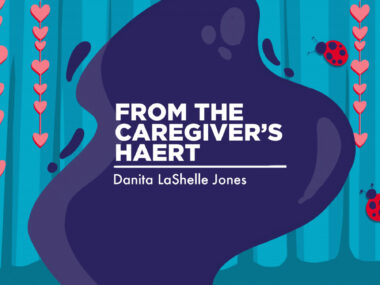How phone marathons can lead to caregiver fatigue
Making frequent calls is an important but tiring aspect of caregiving
Written by |

“My body just locked up and I collapsed,” Matthew Nawn recalled.
Known for its difficulty, the Boston Marathon winds through eight different cities and towns across 26.2 miles. With over 30,000 participants each year and an average finishing rate of 84%, the annual race is not for the average runner. With numerous qualifying races worldwide, runners must finish within a specific time based on age and gender to be eligible to enter. It became even more difficult to qualify when grace periods were removed for auditioning runners.
After qualifying for the 2025 marathon in November 2023, Nawn came to the race as an experienced runner and, according to him, viewed the route as something he could handle. Everything went routinely after the starting gun.
Unfortunately, during the race on April 21, his body began to signal fatigue. By mile 22, his legs were in trouble, and he collapsed mere feet from the finish line.
Although he performed well at previous marathons during college and is an avid runner, his exhaustion overcame his desire to complete the task.
With sheer will and so close to his goal, Nawn did the only thing he could do: He crawled across the finish line.
Over the past several years, I, like many caregivers, have felt a bit like Nawn.
My own kind of marathon
When our daughter, whom we lovingly refer to as Ladybug, was diagnosed with hereditary angioedema (HAE), we were introduced to a different kind of “marathon”: phone calls.
Managing Ladybug’s HAE started relatively simply. We had to make calls to schedule and confirm appointments, order maintenance and emergency medications, and often call the school if her flares led to a trip to the hospital.
But there’s another side to phone calls in caregiving. Often, we found ourselves negotiating with our insurance company, seeking preapproval for medications Ladybug was already taking, and navigating technical mistakes that hindered proper delivery. These phone calls are frequent and daunting, resulting in many hours of making calls, returning calls, and leaving extensive messages.
My husband and I have become seasoned “phone marathoners” to ensure Ladybug has the proper medication and care, but recently, I hit a bit of a wall.
An inadvertent clerical error left the letter “s” off of Ladybug’s legal name, causing a delay in medication delivery. While the mistake was nobody’s fault, I’ll admit that when faced with the last few steps to correct the error, I metaphorically collapsed.
I, the seasoned phone caller, was too mentally exhausted to finish something I had essentially been trained, through experience, to do.
But like Nawn, after so many phone calls, I felt too close to the finish line to give up. Looking back, the phone call, which lasted less than five minutes, may have seemed like nothing to fret about. But pushing past that type of barrier was a huge accomplishment.
Caregiver fatigue can show up in many ways. And sometimes, it doesn’t matter how much training or preparation we have, there are moments when even the most mundane tasks seem insurmountable.
The important thing to remember is that even if we’re crawling, as long as we keep moving forward, completing a task may not be as pretty as we’d like, but we can still celebrate that we finished.
Note: Angioedema News is strictly a news and information website about the disease. It does not provide medical advice, diagnosis, or treatment. This content is not intended to be a substitute for professional medical advice, diagnosis, or treatment. Always seek the advice of your physician or other qualified health provider with any questions you may have regarding a medical condition. Never disregard professional medical advice or delay in seeking it because of something you have read on this website. The opinions expressed in this column are not those of Angioedema News or its parent company, Bionews, and are intended to spark discussion about issues pertaining to angioedema.





Leave a comment
Fill in the required fields to post. Your email address will not be published.